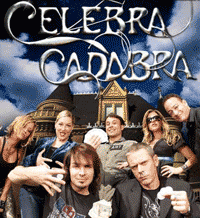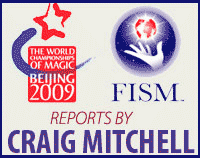WAS THE FIRST HACKER A MAGICIAN
 I am not going to waste time here discussing the differences between the terms "hackers," "phreakers" and "crackers," so I'll use the term "hacker" as in the source for this story about Nevil Maskelyne from "New Scientist.
I am not going to waste time here discussing the differences between the terms "hackers," "phreakers" and "crackers," so I'll use the term "hacker" as in the source for this story about Nevil Maskelyne from "New Scientist.
In essence, when Guglielmo Marconi presented his telegraph to the Royal Institue in 1903, he told the St. James Gazette of London "that his wireless messages could be sent privately over great distances. "I can tune my instruments so that no other instrument that is not similarly tuned can tap my messages."
Unfortunately for Marconi, the demonstrationdid not go as planned with an unexpected morse message being delivered to the theater .Mentally decoding the missive, Blok realised it was spelling one facetious word, over and over: "Rats". A glance at the output of the nearby Morse printer confirmed this. The incoming Morse then got more personal, mocking Marconi: "There was a young fellow of Italy, who diddled the public quite prettily," it trilled. Further rude epithets - apposite lines from Shakespeare - followed.
Four days later a gleeful letter confessing to the hack was printed by The Times. The writer justified his actions on the grounds of the security holes it revealed for the public good. Its author was Nevil Maskelyne, a mustachioed 39-year-old British music hall magician.
































































































































































































 Print Article
Print Article